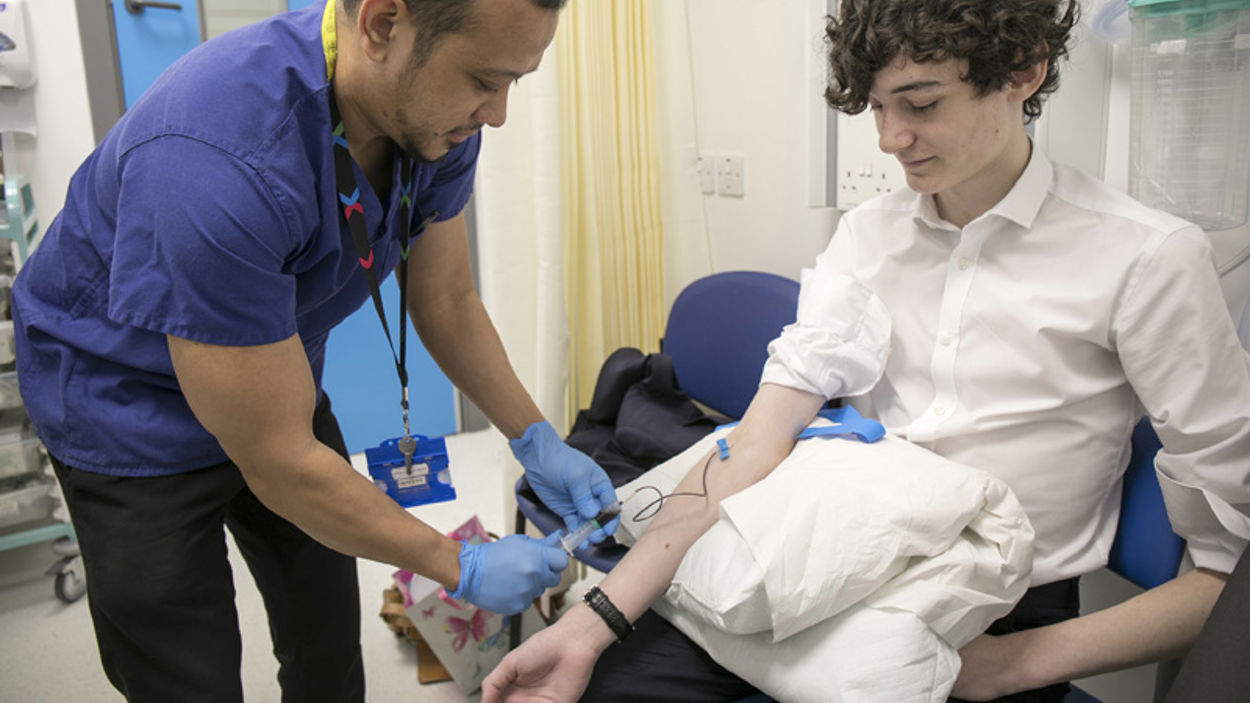There are several treatments available for children with Crohn's and colitis. The aim of treatment is for a child to feel well and lead a normal lifestyle. Relapses (flares) are still possible, but remission can last for years. Personalised medicine is an important focus of research so that treatments can be tailored to each individual, depending on the location and severity of their inflammatory bowel disease (IBD).
Enteral feeding
As Crohn’s disease mostly affects the small bowel, where food is absorbed, enteral feeding is used as the first line of treatment for children with Crohn’s. This is a special liquid feed containing all the nutrients a child needs and comes in a form that is easily digested. Importantly, it has no side effects and will often bring about remission. This special feed can sometimes be taken as a drink but if unpalatable, it can be given through a naso-gastric tube. This special feed will usually be given for six to eight weeks – no food can be had during this time. At the end of this period, foods will be reintroduced gradually, starting with bland foods. Enteral feeding may be continued as a supplement to normal food. Enteral feeding does not help with Ulcerative colitis, as this is confined to just the large bowel, .
pharmaceutical treatments for inflammatory bowel disease
The drugs used to treat IBD work by calming down inflammation and as with most drugs there may be some unwanted side effects. Your consultant will use the smallest amount needed to bring about remission and patients will be monitored carefully but if you are unsure about anything whilst on a drug regime, ask the IBD nurse or a member of the team. Steroids and a range of immunosuppressants and biologic treatments may be needed to control inflammation and bring about remission.
photo © VSP
